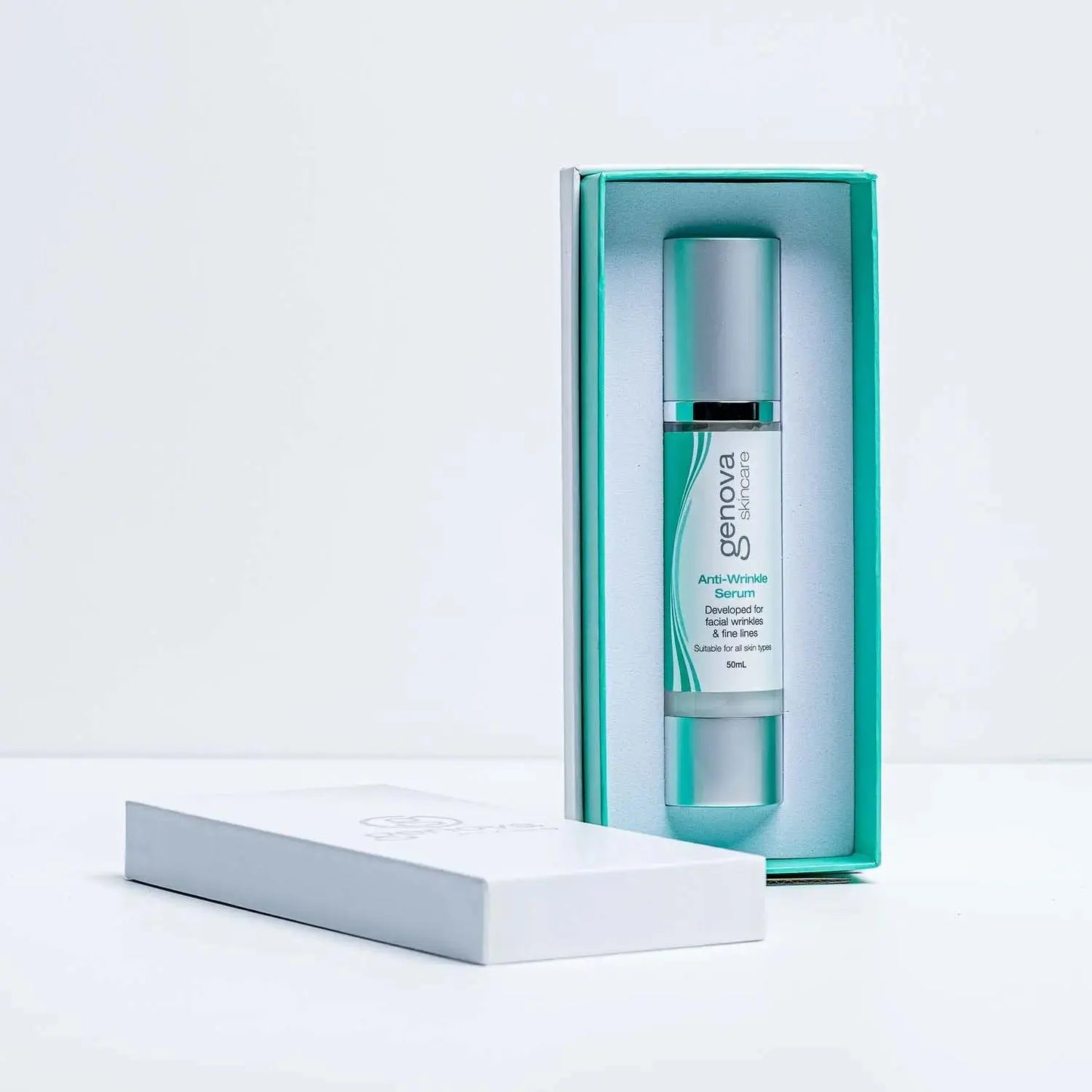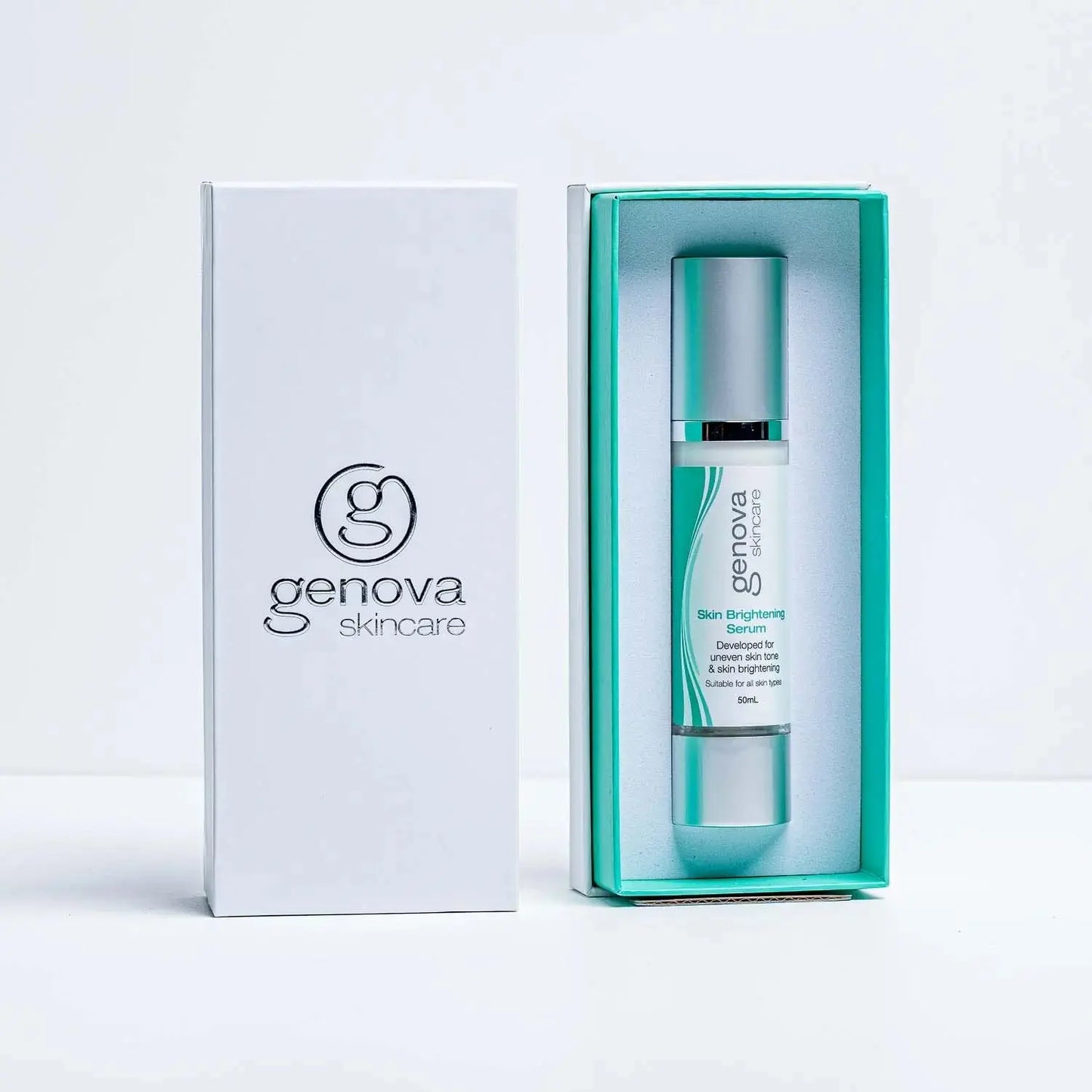Night Sweats and Your Skin: How to Protect Your Complexion During Menopausal Sleep Disruption
Do you wake up in the middle of the night with your pyjamas and sheets drenched in sweat, only to feel chilled and uncomfortable moments later? This roller coaster of temperature fluctuations isn’t just disrupting your sleep – it’s also taking a toll on your skin.
It’s not just you. Night sweats, a common experience shared by up to 80% of menopausal women, create a challenging environment for skin health. The constant cycle of perspiration followed by cooling and drying can leave your skin dehydrated, irritated, and more vulnerable to premature ageing. Many women notice their complexion looks duller and feel more sensitive during this time despite maintaining their regular skincare routine.
Today, we’re exploring how night sweats affect your skin and sharing practical, manageable strategies to protect your complexion while navigating this challenging aspect of menopause. These are theoretical solutions and actionable steps to regain control over your skin health.
How Night Sweats Impact Your Skin
The Dehydration Cycle
When you experience night sweats, your body loses significant moisture through perspiration. A single episode can cause your skin to lose essential hydration, disrupting its natural balance. As sweat evaporates, it takes water, natural oils, and minerals that maintain your skin barrier.
This repeated cycle of sweating and drying creates a pattern of transepidermal water loss (TEWL) that’s difficult for your skin to compensate for, especially with the already-reduced oil production that comes with menopause. The result is skin that feels increasingly dry, tight, and uncomfortable.

Disruption to Skin Repair Processes
Your skin performs much of its repair and regeneration work during sleep. Night sweats interrupt your sleep cycles and interrupt these crucial repair processes. Research has shown that sleep disruption decreases collagen production and accelerates collagen breakdown – precisely what menopausal skin doesn’t need.
The stress caused by poor sleep also triggers increased cortisol production, which can further break down collagen and elastin fibres that maintain skin firmness and elasticity. For many women, frequent night sweats create a noticeable acceleration in skin aging.
Increased Sensitivity and Reactivity
The combination of moisture loss, barrier disruption, and stress hormones creates the perfect environment for increased skin sensitivity. Products that once worked beautifully may suddenly cause stinging or redness. Your skin might also react more to environmental factors like weather changes or pollution.
This heightened sensitivity often leads women to believe they’ve developed new allergies or sensitivities when, in reality, their skin barrier function has been compromised by the physiological effects of night sweats.
Protecting Your Skin During Night Sweats
Evening Skincare Strategies
Adapting your evening skincare routine can significantly mitigate the effects of night sweats on your complexion. Focus on creating a protective barrier that helps your skin retain moisture even through episodes of perspiration.
Begin with gentle cleansing that doesn’t strip your skin’s natural oils. Follow with hydrating products containing ingredients like hyaluronic acid that bind water to the skin. Apply a barrier-supporting moisturiser with ceramides to help seal in hydration and strengthen your skin’s protective layer.
For many women experiencing night sweats, layering skincare products rather than a single heavy cream proves more effective. This approach allows your skin to breathe while still providing the necessary protection. Consider a hydrating serum followed by a medium-weight moisturiser rather than an occlusive night cream that might feel uncomfortable during sweating episodes.
Bedtime Environment Modifications
Creating a sleep environment that minimises the impact of night sweats can help protect your sleep quality and your skin. Keep your bedroom temperature between 16 °C and 18°C, as cooler temperatures reduce the likelihood of night sweats and support healthy sleep patterns.
Choose bedding materials that support skin health during night sweats. Natural fibres like bamboo, silk, and high-quality cotton wick moisture away from the skin without causing friction. These materials help maintain your skin’s moisture balance even during episodes of perspiration. Avoid synthetic fabrics that trap heat and moisture against the skin, potentially exacerbating irritation.
Consider using a humidifier in your bedroom during drier months. Adding moisture to the air can help counterbalance the dehydrating effects of night sweats and support your skin’s natural moisture balance.

Morning Recovery Routine
How you care for your skin the morning after night sweats can significantly affect its resilience and appearance. Begin with a gentle, pH-balanced cleanser to remove salt residue from perspiration without stripping essential moisture.
Follow with antioxidant protection, as skin that has experienced stress and disrupted repair cycles is particularly vulnerable to oxidative damage. Vitamin C serums provide this protection and help brighten skin that might look dull from disrupted sleep.
Focus on rehydration throughout the day. For moisture replenishment, consider keeping a facial mist containing glycerin or hyaluronic acid at your desk or in your bag. Drink plenty of water to help restore hydration from within.
Skincare Ingredients That Help
Certain ingredients are particularly beneficial for skin experiencing the effects of night sweats:
Ceramides work to rebuild and strengthen your skin barrier, helping it retain moisture even through cycles of perspiration and cooling. Studies show ceramides can significantly improve barrier function in mature skin, making them essential for menopausal skin care.
Peptides support your skin’s repair processes, which is particularly important when these processes are disrupted by poor sleep. They signal your skin to produce more collagen, helping maintain elasticity and firmness despite hormonal changes.
Niacinamide (Vitamin B3) reduces redness and sensitivity while supporting barrier function. Its anti-inflammatory properties make it particularly helpful for skin experiencing the stress of temperature fluctuations.
Glycerin acts as a humectant, drawing moisture from the air into your skin. It provides lasting hydration without feeling heavy or greasy, making it ideal for use before bed and throughout the day.

Our Overnight Recovery Serum combines these key ingredients in a lightweight formula to support skin through menopausal night sweats. It’s breathable texture won’t feel heavy during episodes of perspiration, while its barrier-supporting ingredients help protect against moisture loss.
While skincare is crucial in protecting your complexion, it’s just one piece of the puzzle. A holistic approach to managing night sweats, including lifestyle adjustments and relaxation techniques, can significantly benefit your skin and overall well-being. While skincare is crucial in protecting your complexion, addressing night sweats can dramatically help your skin and overall well-being.
Quick Tips for Reducing Night Sweat Frequency and Intensity
- Stay hydrated throughout the day, but reduce fluid intake 2-3 hours before bedtime
-
Avoid known triggers in the evening, especially:
- Spicy foods
- Alcohol
- Caffeine
- Hot beverages
- Layer your bedding with natural fibres for easy adjustment during the night.
- Exercise regularly earlier in the day to help regulate body temperature
- Practice relaxation techniques like deep breathing or gentle yoga before bed
- Keep a cooling spray by your bedside for quick relief during episodes
- Consider cooling accessories like gel pillows or wicking pyjamas designed for night sweats
If night sweats significantly disrupt your sleep and affect your quality of life, consider discussing managing them with your healthcare provider. Various approaches, from lifestyle modifications to medical interventions, can help reduce their frequency and intensity.
Embracing Self-Care During This Transition
The menopausal transition, with all its challenges, offers an opportunity to deepen your relationship with self-care. Rather than viewing night sweats and their effects on your skin as simply another problem to solve, consider them an invitation to develop more nurturing routines.
Create a bedtime ritual that helps you relax before sleep, potentially reducing the stress that can trigger night sweats. Practice gentle facial massage while applying your evening skincare to stimulate circulation and lymphatic drainage. Approach your morning skincare as an act of kindness toward your skin after a challenging night.








